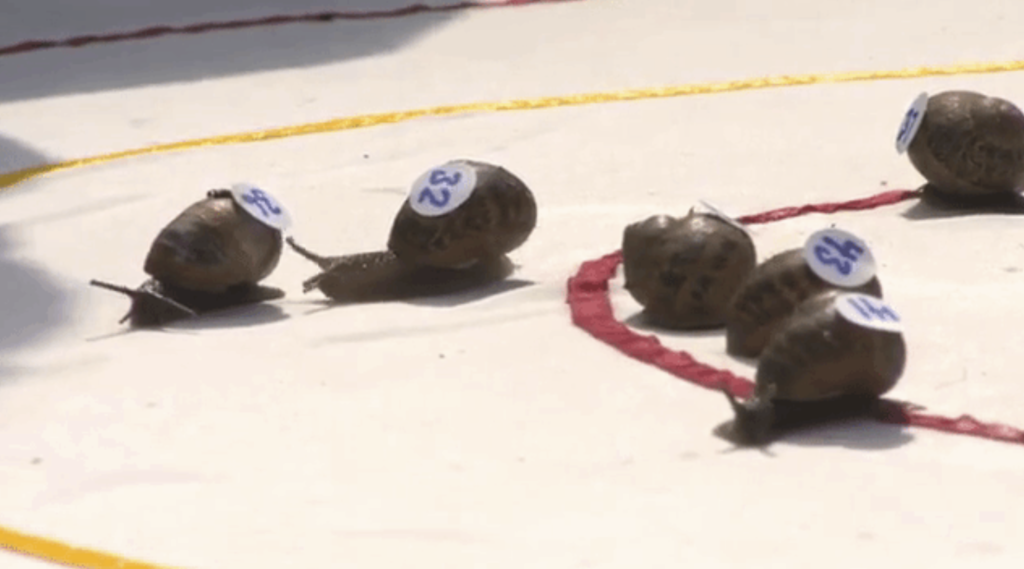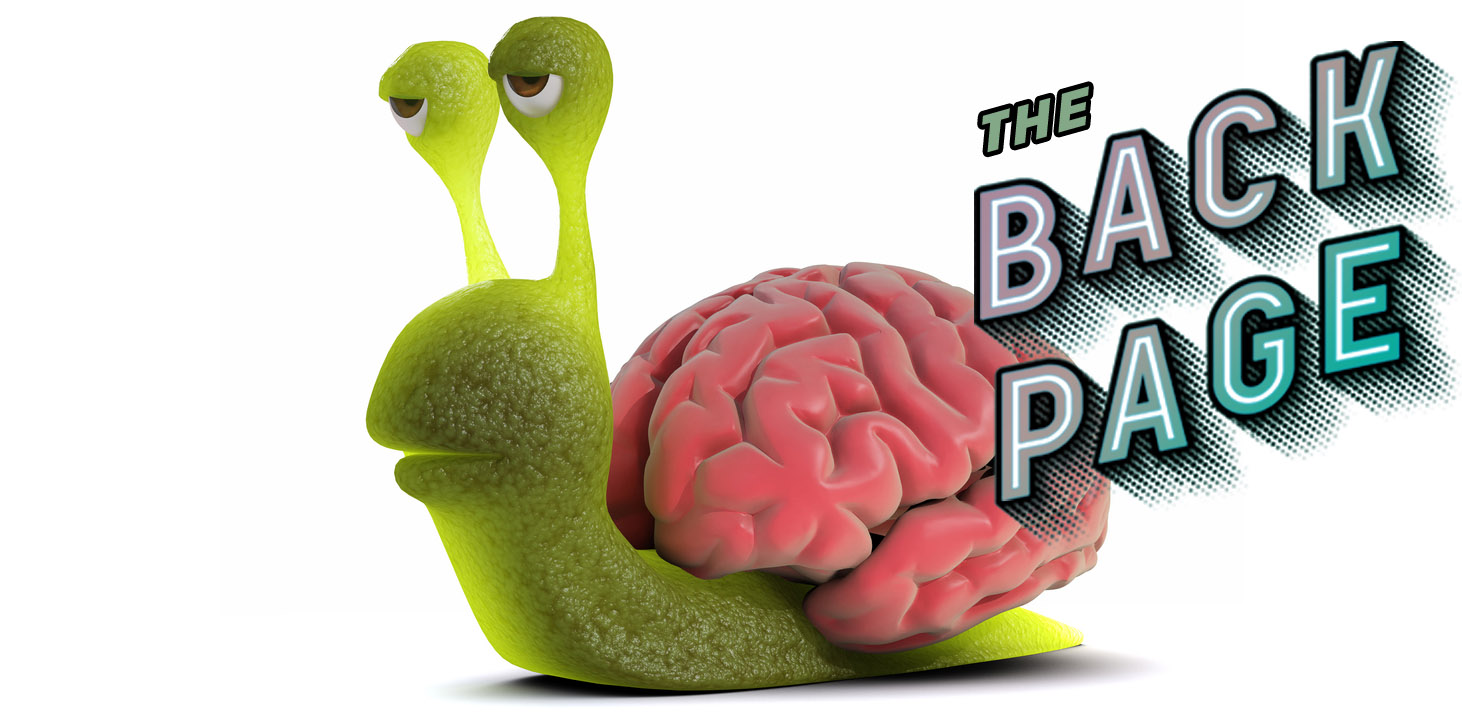Is that slimy trail leading to an Ig Nobel prize?
Bop! Tapping snails on the head to learn about taste aversion is inherently funny but also interesting.
Researchers are cracking the secrets of why food poisoning turns us off certain types of food – through the very cute science of snail neurology.

If there is one thing snails adore, it’s sugar.
In a study published in Current Biology, UK researchers turned snails off sugar by tapping them on the head gently when sugary foods appeared.
[Would these researchers like a job in my garden? – Ed.]
After the anti-sugar association training, the snails refused to eat sugar even when hungry, but were just as likely to chew on cucumbers.
After investigating the response in the snail brain, the researchers realised that a ‘switch’ was being turned on that suppressed feeding in the presence of sugar.
The effect of the sugar could be “likened to eating a bad takeaway curry which then puts us off that particular dish in future,” said Professor George Kemenes, a neuroscientist at the University of Sussex and a member of the investigative team.
“Snails provide us with a similar yet exceptionally basic model of how human brains work,” he said.
“The effect of the inhibitory neuron which suppresses the feeding circuit in the snail is quite similar to how, in the human brain, cortical networks are under inhibitory control to avoid ‘runaway’ activation which may lead to overeating resulting in obesity.
“We believe that in a human brain, a similar switch could be happening where particular groups of neurons reverse their activity in line with the negative association of a particular food. “
If you see something stupid, say something stupid… Non-snail mail goes to felicity@medicalrepublic.com.au.


